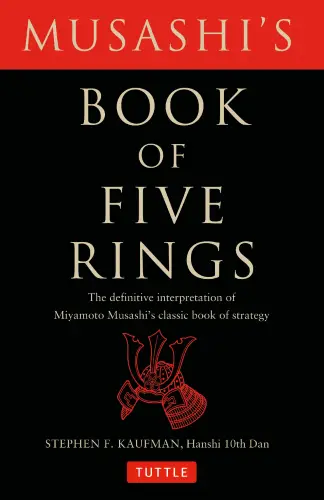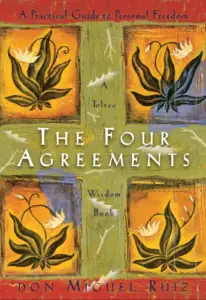The Book of Five Rings
Book Author: Miyamoto Musashi
Summary reviewed by:
Terrence Timmons
Terrence Timmons
Analyst
Bachelor of Arts (BA), University Of California, Santa Barbara 2019
With over 4 years of experience as an analyst. Terrence Timmons is committed to analyzing summaries without compromising on quality.
The Book of Five Rings: Summary
Unleash the wisdom of the ancient warrior, master the way of the sword, and delve into the profound philosophy of a true samurai! In "The Book of Five Rings," the legendary swordsman Miyamoto Musashi reveals the secrets of his success, not merely in physical combat but in life and spirituality. Structured around the Five Elements - Earth, Water, Fire, Wind, and Void - this profound work unveils a unique philosophy of battle, strategy, and personal growth.
The Earth chapter lays the foundation, encompassing the principles of combat and the path of a warrior. In the Water chapter, fluidity, adaptability, and the understanding of your opponent come to the forefront. Fire illuminates aggression and control, whereas Wind explores different schools and traditions, encouraging a broad perspective. Finally, the Void chapter transcends all, embracing the mysterious and ineffable nature of existence. Together, these teachings forge a path for anyone seeking mastery, wisdom, and enlightenment, regardless of their walk of life.
The Book of Five Rings: Genres
Self-help
Non-Fiction
Philosophy
Martial Arts
Strategy
The Book of Five Rings: Themes
Strategy: Musashi elaborates on the importance of strategic thinking in both martial arts and life. This is reflected in his analysis of various swordsmanship schools and the development of one’s own style.
Self-Discipline: Through rigorous training and self-reflection, one can attain mastery over oneself. Musashi’s dedication to his art and his lifelong quest for improvement underscore this theme.
Adaptability: Fluidity and the ability to adapt to circumstances are vital. In the Water chapter, Musashi teaches that one must be like water, conforming to the shape of the situation yet retaining the essence.
Understanding the Opponent: Deep insight into an opponent’s mind and strategy is essential. Musashi emphasizes learning to “think with the enemy’s mind,” allowing one to predict and counter their moves.
Transcendence: The final chapter, Void, speaks of transcending technique and form to reach a higher understanding of reality. Musashi’s insights here move beyond martial arts, offering a spiritual guide to life’s deeper truths.


The Book of Five Rings
Date Published: 1645
Disclaimer: As an Amazon Associate I earn from qualifying purchases.




